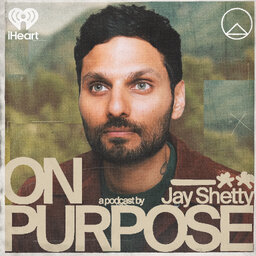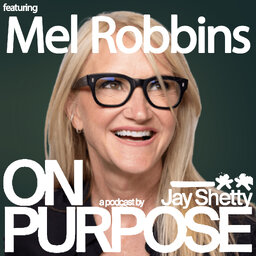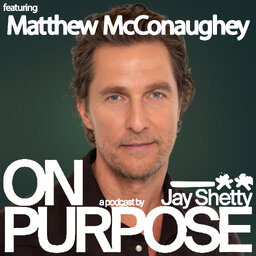Bob Parsons ON: How to Be Present & Not Fear the Future
Today, I sit down with Bob Parsons to talk about overcoming adversities. Bob shares how his war veteran trauma affected his personal life and what he did to overcome it, his journey into starting his business and finding success, and finally having found his purpose in life to always make a difference whenever he can.
Bob Parsons is best known for being the founder of GoDaddy. Bob sold a majority stake in 2011 in a deal that valued the company at $2.3 billion. Currently, Bob is the CEO and founder of YAM Worldwide, which is home to his entrepreneurial ventures in the fields of motorcycles, golf, real estate, finance, marketing, innovation, and philanthropy. YAM Worldwide includes companies such as PXG and Scottsdale National Golf Club. Bob is also a US Marine Corps Vietnam veteran, and is widely recognized for his entrepreneurial and philanthropic efforts.
You can order my new book 8 RULES OF LOVE at 8rulesoflove.com or at a retail store near you. You can also get the chance to see me live on my first ever world tour. This is a 90 minute interactive show where I will take you on a journey of finding, keeping and even letting go of love. Head to jayshettytour.com and find out if I'll be in a city near you. Thank you so much for all your support - I hope to see you soon.
What We Discuss:
- 00:00 Intro
- 03:18 How can we learn to quantify the worst things in our life?
- 06:45 Dealing with PTSD alone and the symptoms that come with it
- 11:14 Having the remarkable ability to disassociate and using it your advantage
- 12:25 The trick to becoming a successful businessman and what history can teach us
- 15:56 Top 3 things to focus on when you want to start your own business
- 18:25 The GoDaddy story - how it started, success, and making a difference
- 25:42 What have been the biggest failures in your life?
- 26:38 Tapping into psychedelics to help deal with self reform
- 32:29 Believe in yourself and always have fun
- 38:39 Bob on Final Five
Episode Resources
- Bob Parsons | Website
- Bob Parsons | Instagram
- Bob Parsons | LinkedIn
- Bob Parsons | Twitter
- YAM Worldwide
Want to be a Jay Shetty Certified Life Coach? Get the Digital Guide and Workbook from Jay Shetty https://jayshettypurpose.com/fb-getting-started-as-a-life-coach-podcast/
In 1 playlist(s)
On Purpose with Jay Shetty
My name is Jay Shetty, and my purpose is to make wisdom go viral. I’m fortunate to have fascinating …Social links
Follow podcast
Recent clips

Feel Stuck, Confused, or Behind? Use THIS Blueprint and Completely Transform Your Life in ONE Year!
23:16

MEL ROBBINS: How to Stop People-Pleasing Without Feeling Guilty (Follow THIS Simple Rule to Set Boundaries and Stop Putting Yourself Last!)
1:15:47

MATTHEW MCCONAUGHEY: The KEYS to a Meaningful Life (Love, Faith, Family & Turning Failure into Growth)
1:36:00
 On Purpose with Jay Shetty
On Purpose with Jay Shetty